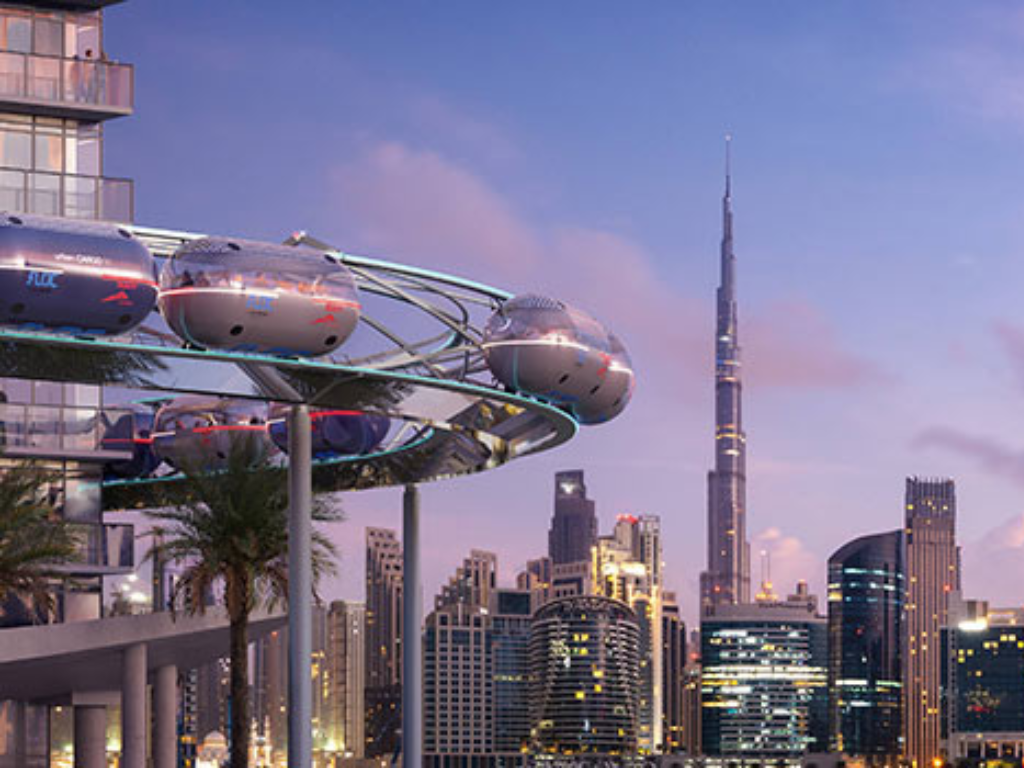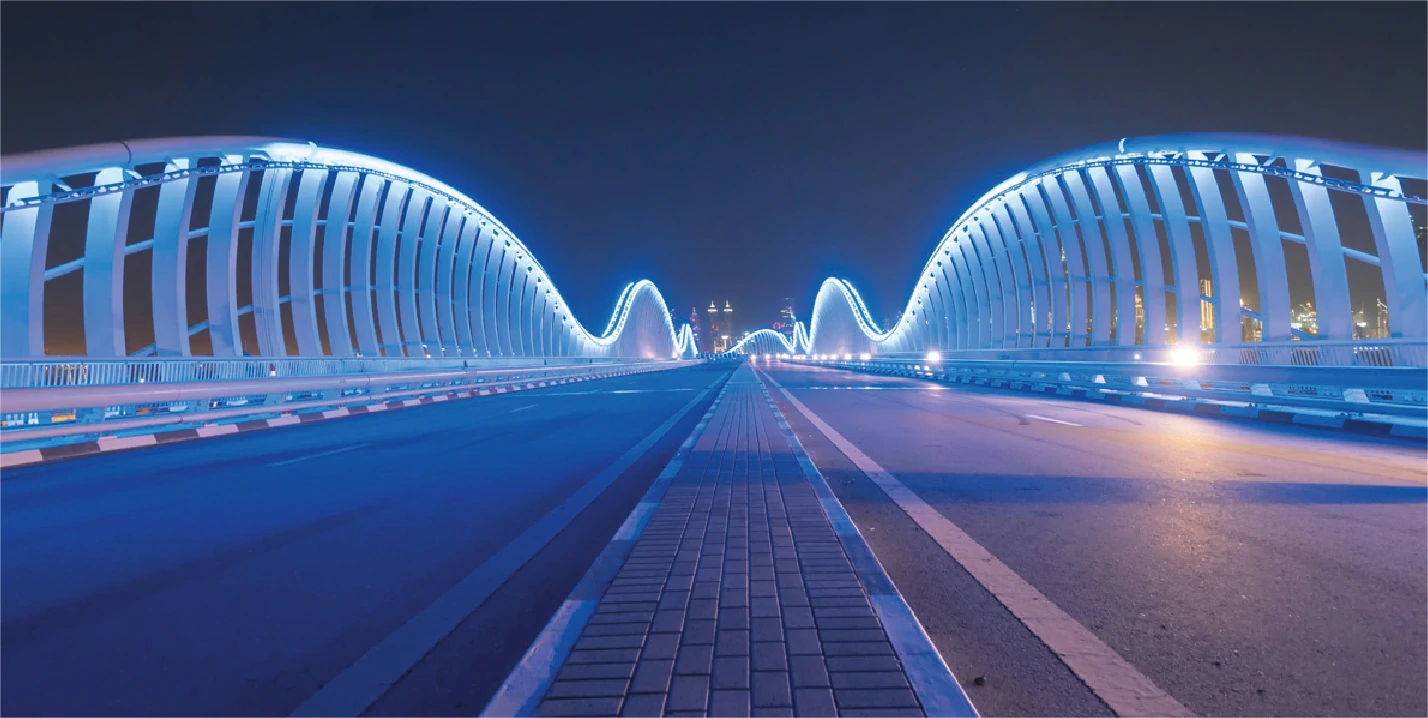Dubai’s Roads and Transport Authority (RTA) has signed two memoranda of understanding (MoUs) in the field of developing new and innovative transportation systems as part of the Dubai International Project Management Forum (DIPMF). The first MoU is related to considering the possibility of developing the Floc Duo Rail system, a double-track system that allows transportation units to move quickly and efficiently. The second MoU is related to considering the possibility of developing a rail bus system, which travels on a bridge equipped with solar panels to generate the electricity needed to operate the system.
The two MoUs were signed with two companies that specialise in developing and manufacturing transportation systems, as well as designing mass transportation solutions for zero emissions. The companies involved were Urban-Mass Company, based in the UK, and RAIL BUS Inc., based in the US.
The two MoUs were signed by Abdul Mohsen Kalbat, CEO of the Rail Agency, RTA, while Ricky Sandhu, Founder, and CEO of Urban Mass, signed on behalf of the company. Additionally, Dr. Hatem Al-Taher Ibrahim, the Director of Business Development, signed for Rail Bus Inc. company.
Abdul Mohsen Kalbat said, “The signing of these two MoUs is part of RTA’s strategic plans to engage in communication with premier companies and specialised entities in this field to identify and adopt the most sophisticated and advanced practices. Currently, RTA is exploring a range of innovations in the field of transportation systems including the world’s first innovative transportation system called the “Floc Duo Rail.” This system features double tracks that allow transportation units to move swiftly and efficiently within urban areas. It is a driverless system and uses electrical power. This system uses short units during low peak periods and long units during high peak periods to meet the emirate’s needs effectively.
“The second novel transportation system from Urban Mass features vehicles operating on a bridge outfitted with solar panels. These panels harness solar energy to power the system, ensuring its operation in Dubai. This system is distinguished by its contemporary design and offers the advantage of lower costs in comparison to similar transportation systems.
“This step reflects RTA’s strategy for achieving sustainable development and improving the city’s quality of life. RTA reiterates its commitment to adopting the latest technologies and innovations in transportation, which enhances the passenger experience in the Emirate of Dubai.
Ricky Sandhu said: “The company views its commitment to introduce the Floc Duo Rail system in Dubai through this MOU as a significant stride forward.”
He acknowledged RTA, recognized as a pioneer in embracing pioneering transportation solutions. He expressed gratitude for the opportunity to sign the agreement, spotlighting the Floc Duo Rail system’s merits in reducing emissions and offering efficient transportation modalities powered by cutting-edge technologies.
“This partnership between Urban Mass and the RTA in Dubai epitomises the robust mutual commitment of the United Kingdom and the United Arab Emirates to combat climate change. This partnership is set to pave the way for sustainable mass transit solutions through innovative technology, transforming urban mobility across the city.
Hatim Ibrahim, the CEO of Rail Bus Inc., stated that the collaboration with the Roads and Transport Authority marks a significant milestone for the company towards pioneering sustainable transportation solutions in Dubai. The partnership with RTA, a leader in urban transport innovation, aims to set new benchmarks in sustainable mobility tailored to the unique needs of Dubai’s dynamic landscape. The MOU signed between RAIL BUS Inc. and RTA is a testament to their shared vision of revolutionising urban transportation through cutting-edge, eco-friendly technologies. The partnership signifies a leap towards a greener future, reinforcing RAIL BUS Inc.’s dedication to contributing to Dubai’s smart city vision and commitment to sustainable urban development.

